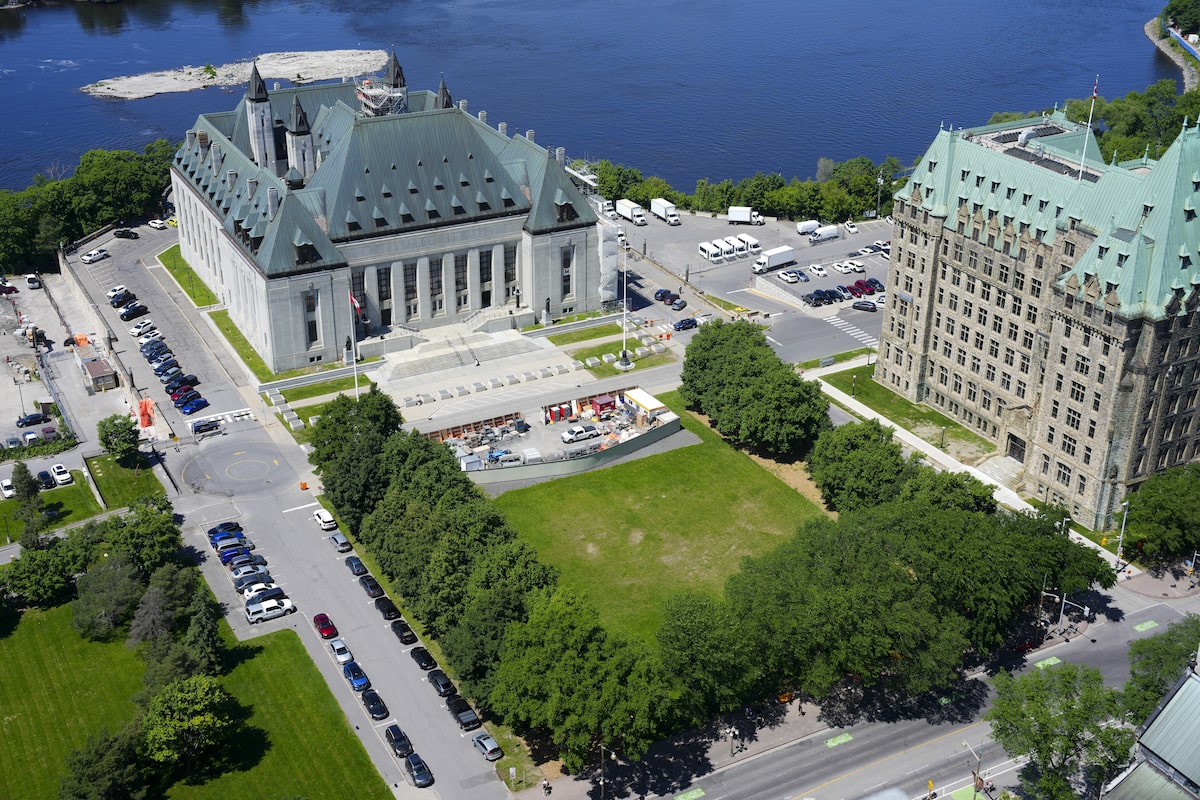The federal government detailed its arguments in a legal filing at the Supreme Court on Wednesday as part of the landmark case on Quebec’s secularism law.Sean Kilpatrick/The Canadian Press
Ottawa is calling on the Supreme Court of Canada to clarify the law around governments’ use of the Charter’s notwithstanding clause, arguing that courts should have a somewhat bigger role in such cases than previously granted by legal precedent.
If the Supreme Court accepts Ottawa’s arguments, it will mark the first substantive limits on governments’ use of the notwithstanding clause to override the rights of Canadians since the Charter of Rights and Freedoms was enacted in 1982.
The federal government detailed its arguments in a legal filing at the Supreme Court on Wednesday as part of the landmark case on Quebec’s secularism law. The filing propels Ottawa towards a clash with the provinces, including Quebec, Ontario and Alberta, on core Constitutional questions at the top court.
Ottawa, provinces set to file arguments in landmark Supreme Court case over Quebec’s secularism law
In 2019, Quebec used the notwithstanding clause to shield legislation to promote secularism in the province, Bill 21, from court challenges. The law bars public service workers including teachers and police from wearing religious symbols such as crosses and hijabs on the job. The law upended the lives of numerous Quebeckers and is widely seen as a violation of freedom of religion.
A Supreme Court hearing on Bill 21, which has not yet been scheduled, will be the first time in almost four decades that the top court conducts an in-depth adjudication of the notwithstanding clause. A 1988 Supreme Court precedent generally endorsed governments’ unfettered use of the clause.
In its filing, the Liberal federal government urged the Supreme Court to impose some limits on the notwithstanding clause. Quebec, Ontario and Alberta oppose any restrictions. Quebec has said its political autonomy is at stake.
Ottawa’s proposed limits include a role for the courts to rule on whether continual use of the notwithstanding clause by a government results in an “irreparable impairment” of Canadians’ rights. Ottawa argued that continual use of a clause meant for temporary purposes “would amount to indirectly amending the Constitution.” It further said that courts “must retain jurisdiction” to determine if governments violate this proposed limit.

